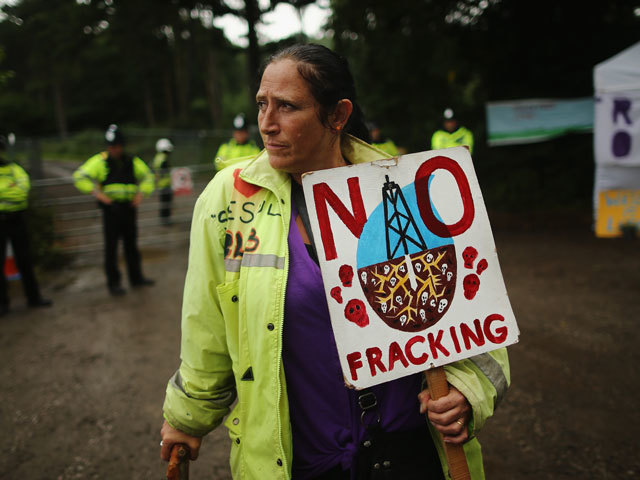
Fracking faces an “uphill struggle” for public acceptability, Lord Chris Smith has admitted as his shale gas task force published a report on the local environment and health impacts of the industry.
The task force said shale gas extraction could be safe for the local environment and people’s health in the UK if provisions were in place and regulated to prevent larger earthquakes, water contamination, gas wells leaking and methane pollution.
The second interim report by the task force called for full disclosure to the public of the chemicals used in the process, to reassure people it is safe, and independent monitoring and regulation to make sure wells do not leak to prevent water contamination.
It called for baseline monitoring of air, water and ground conditions to begin when a potential site is identified for fracking, rather than waiting for planning permission, and for community representatives to be involved in the process, to reassure local people.
And the report said all gas that comes out of the well should be captured, to protect health as well as preventing greenhouse gas emissions, with no venting of gas to the air, no “fugitive” methane emissions, and only a small amount of flaring – or burning the gas – being allowed where absolutely necessary.
Lord Smith, the task force’s chairman, said shale gas extraction “can be done safely if these provisions are firmly in place and rigorously monitored and regulated, but only if that is done can this process be safe”.
But he said: “I think there’s an uphill struggle here because the public are sceptical.
“The thing I’ve said from the outset to the industry the two absolutely essential things are complete openness and transparency about what you’re doing and full engagement with local communities from the outset.”
Moves such as letting local community representatives go on site with the regulators, to witness samples being taken and going to the laboratory to see them being tested, “are the sort of things that have a chance of re-establishing trust”, he said.
And he criticised the Environment Department (Defra) for publishing a heavily-redacted report on shale gas extraction which, it emerged when the full report was published earlier this month, had all the potential negative impacts of fracking deleted.
“I think all of that reveals how foolish it was to redact it so heavily in the first place.
“Again the lesson of this is full openness and full transparency from the outset. The moment you redact 90% of the report everyone’s going to immediately assume you’ve got things to hide,” he said.
The report looks at the major issues around environmental impacts of fracking, drawing on the available evidence from the US and the UK, on seismic activity caused by industrial processes, the potential contamination of ground water, methane emissions and the impacts on local people’s health.
The task force was set up as an independent body to examine the potential benefits and risks linked to shale gas extraction, but is funded by the industry.
Lord Smith acknowledged that the “committed opponents” of fracking would criticise the report, saying “that’s their view, I respect their view, it’s their right to be critical”.
But he insisted: “We have approached in a genuinely independent way, we have not allowed the companies that provided the funding for the task force in any way to influence what we’re saying.”
And he said he hoped the recommendations would be accepted by the industry, which has already committed itself voluntarily to a number of the measures which have been recommended as requirements, such as full disclosure of the fracking fluid chemicals.
Energy Minister Andrea Leadsom said: “Shale gas has huge potential in Britain, with the opportunity to develop secure, home grown energy supplies which will create thousands of jobs.
“This report clearly shows that the UK’s robust regulatory system will allow this to happen safely and sustainably.”
But Friends Of The Earth energy campaigner Tony Bosworth said: “This report recognises the struggle to make controversial fracking technology acceptable to the British public.
“But people know that fracking threatens local pollution and public health, and that it is crazy to be digging up more fossil fuels when we need to leave four fifths of reserves in the ground to avoid runaway climate change.
“The report also confirms what we have been saying – despite reassuring words from a Government and industry desperate to get fracking, UK regulations are not tough enough.
“But tougher rules can only make fracking safer, not safe. This dangerous technology will always carry risks for the local environment and people’s health, as well as adding to climate change – so no amount of regulation or industry-funded task forces will make people embrace fracking.”
Recommended for you
